★★★★★ Boys from the Black Stuff: A Masterclass in Masculine Vulnerability
There's something profoundly queer about watching heterosexual masculinity stripped bare
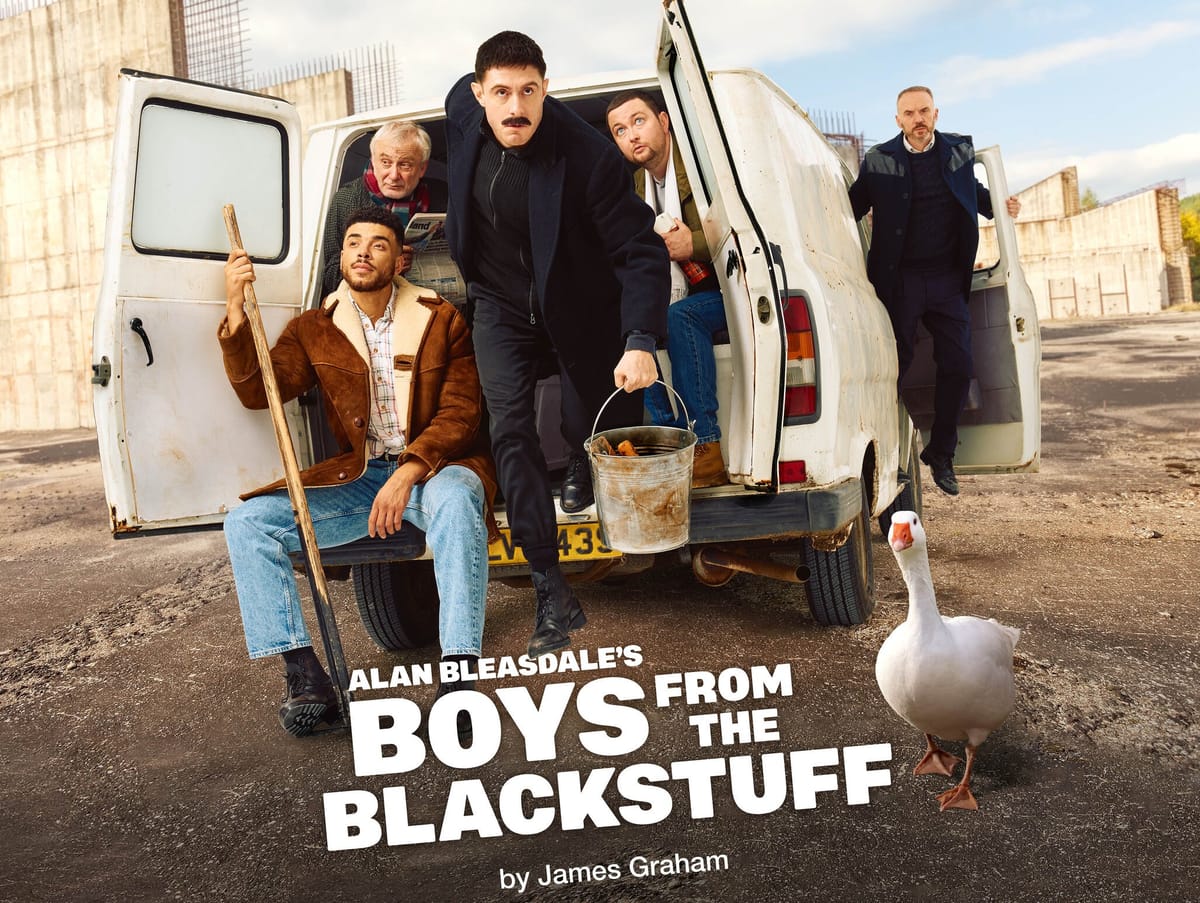
There's something profoundly queer about watching heterosexual masculinity stripped bare and examined under the harsh fluorescent lights of Thatcher's Britain. Kate Wasserberg's visceral production of Alan Bleasdale's Boys from the Black Stuff at Theatre Royal Brighton revisits the unemployment crisis of 1980s Liverpool and excavates the foundations of what it means to be a man when society has deemed you surplus to requirements.
Set against the backdrop of a city in decline, we meet Chrissie, Loggo, George, Dixie, and the unforgettable Yosser—five men whose identities, inextricably bound to their capacity to provide, crumble alongside the docklands that once defined their world. "Work harder, work longer, buy cheaper, spend less"—the mantras of Thatcherite piety ring hollow when there isn't any work to be had. These men don't need lectures; they need a chance.
The set design evokes those industrial cities left to rot, the opening montage layers images of Thatcherite sanctimony over scenes of police brutality and civil unrest. Dyfan Jones's soundscape weaves together pop anthems with the haunting echoes of river, dock, and city, creating an audio geography that places us firmly in Liverpool's dying heart. By the decade's end, unemployment had reached three million—the dole weaponised, the state's brutality laid bare.
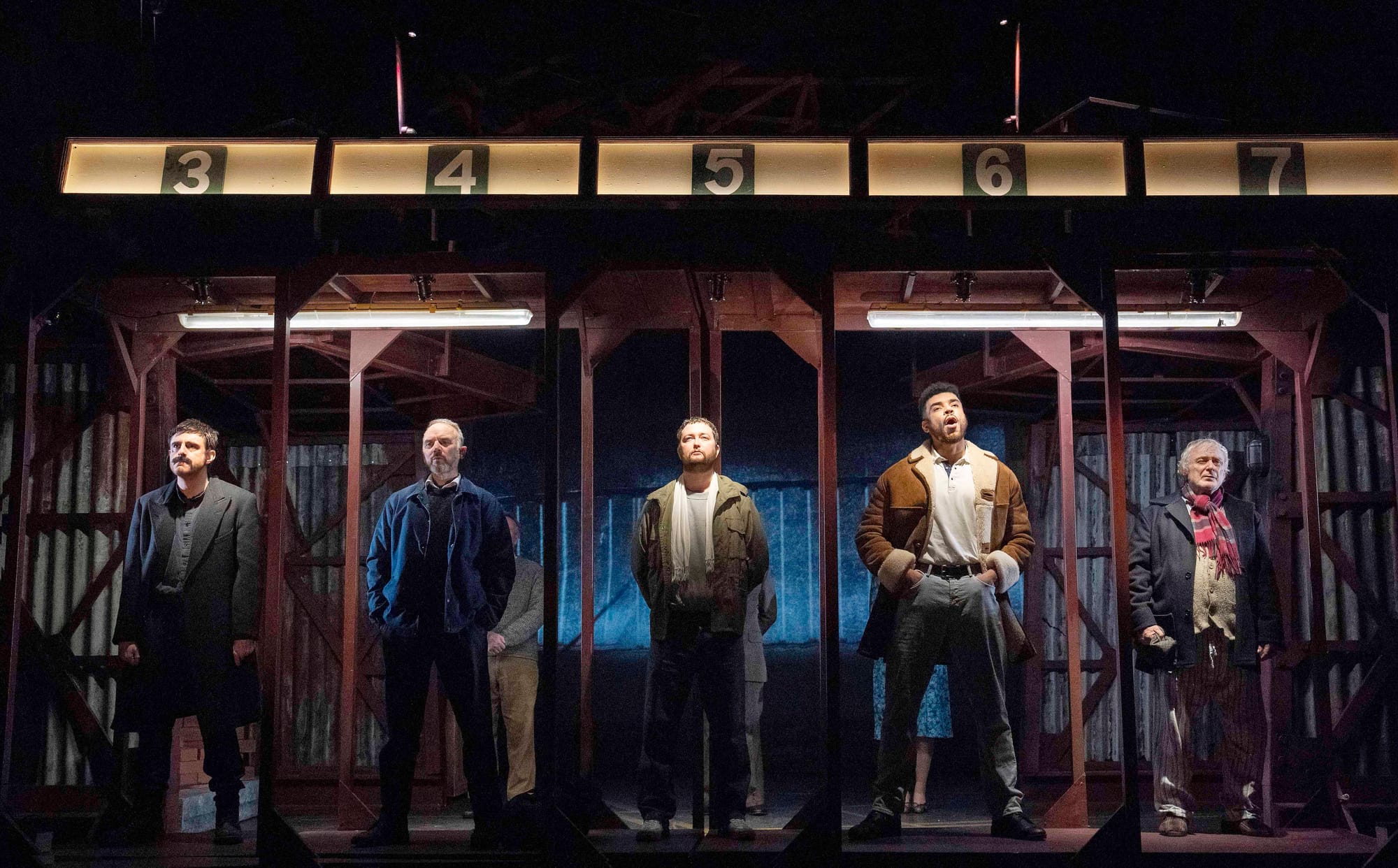
Yet what emerges most powerfully is the depth of masculine understanding, the fierce camaraderie, and community bonds that become both lifeline and anchor. Director Kate Wasserberg frames this man's world with precision—tightly wrought, hard-won, desperate to connect. The men's coping mechanisms—their schemes, dodges, pleas, and eventual abandonment of hope—unfold through a series of vignettes punctuated by Yosser's increasingly desperate mantra: "I can do that."
Based on Bleasdale's television series about workers claiming benefits whilst working illegally, the adaptation keeps it’s dark humour whilst sharpening its focus on human struggle and community tragedy. The twin narratives of Chrissie's moral conflict and Yosser's descent into madness form the play's gravitational centre, lending weight to the ensemble's collective search for love, understanding, dignity, and self-respect in a world seemingly designed to deny them all.
Full list of cast and creatives here on the UK Tour site.
The 'sniffers'—the dreaded unemployment investigators who reduce men to mere numbers—provide the production's most chilling bureaucratic villainy. Jamie Peacock delivers a proud slippery Moss, a figure made more reprehensible by his origins in Liverpool 8, the community now devastated by unemployment. In sharp contrast, Sian Polhill-Thomas commands the space with the weary authority of someone who's seen it all—calm, rational, toeing the government line whilst secretly saving whom she can from the ravaging flood of societal abandonment. Hers is a curious redemptive arc in a narrative otherwise devoid of such grace.
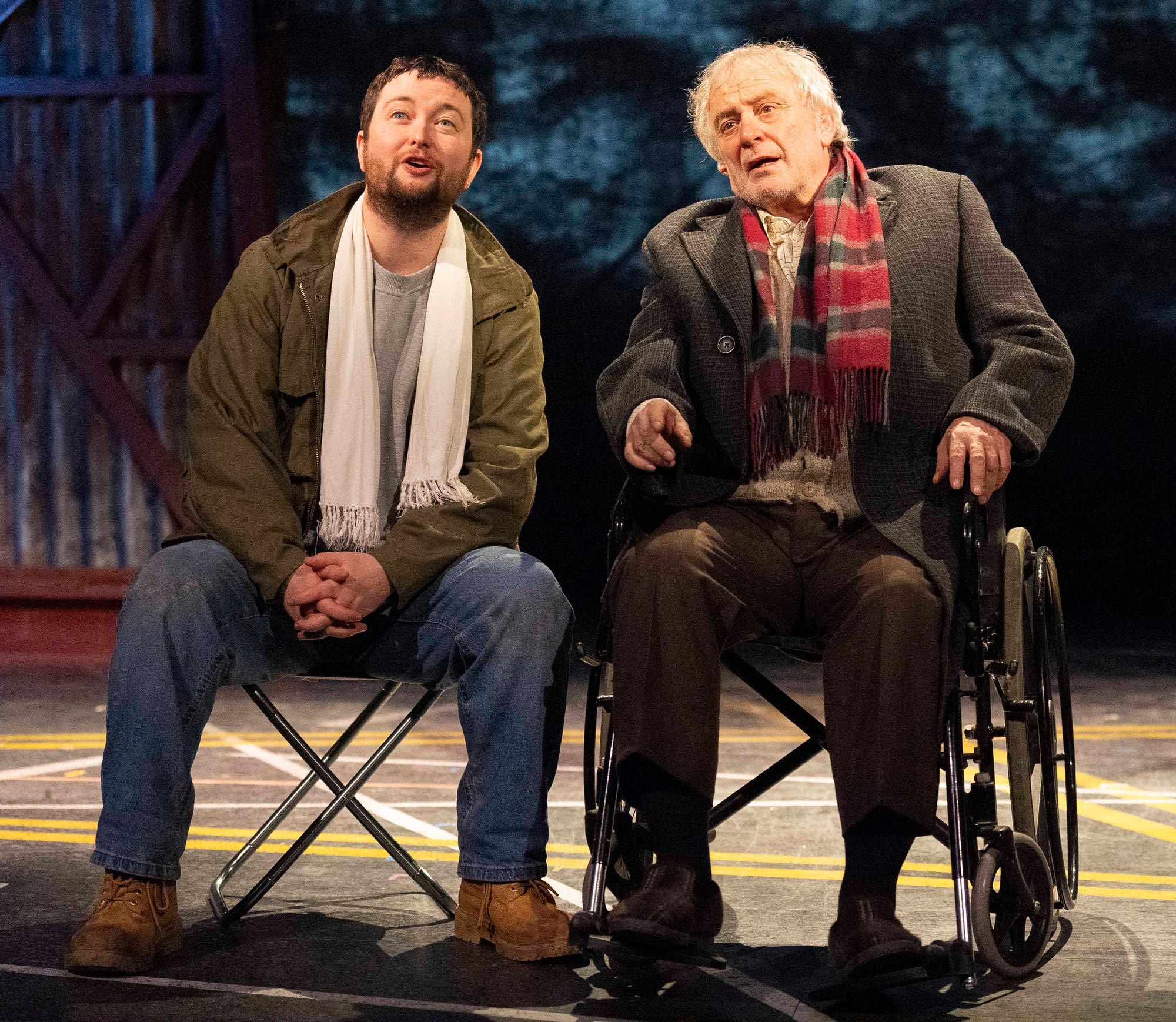
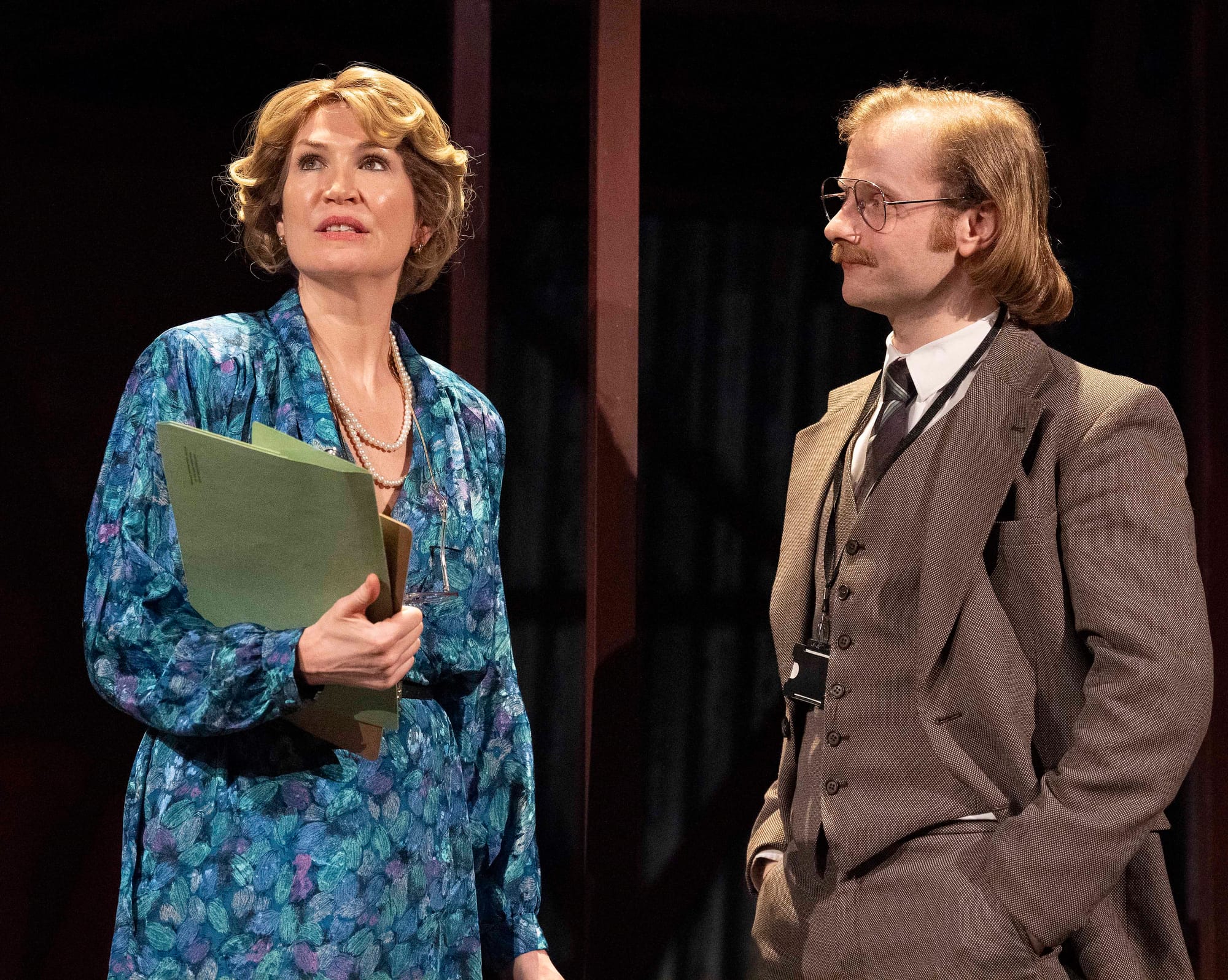
Wasserberg doesn't shy away from examining how this crisis devastated women and children, refusing to let masculine suffering eclipse the broader human cost. Rachael Nanyonjo's choreographed depiction of police brutality is no less shocking for its balletic, slow-motion grace—fellow Liverpudlians, now uniformed Police and de facto agents of the state, beating hopeless men into bleeding submission. My companion was visibly moved, deeply affected by this historical drama unfolding with immediate power.
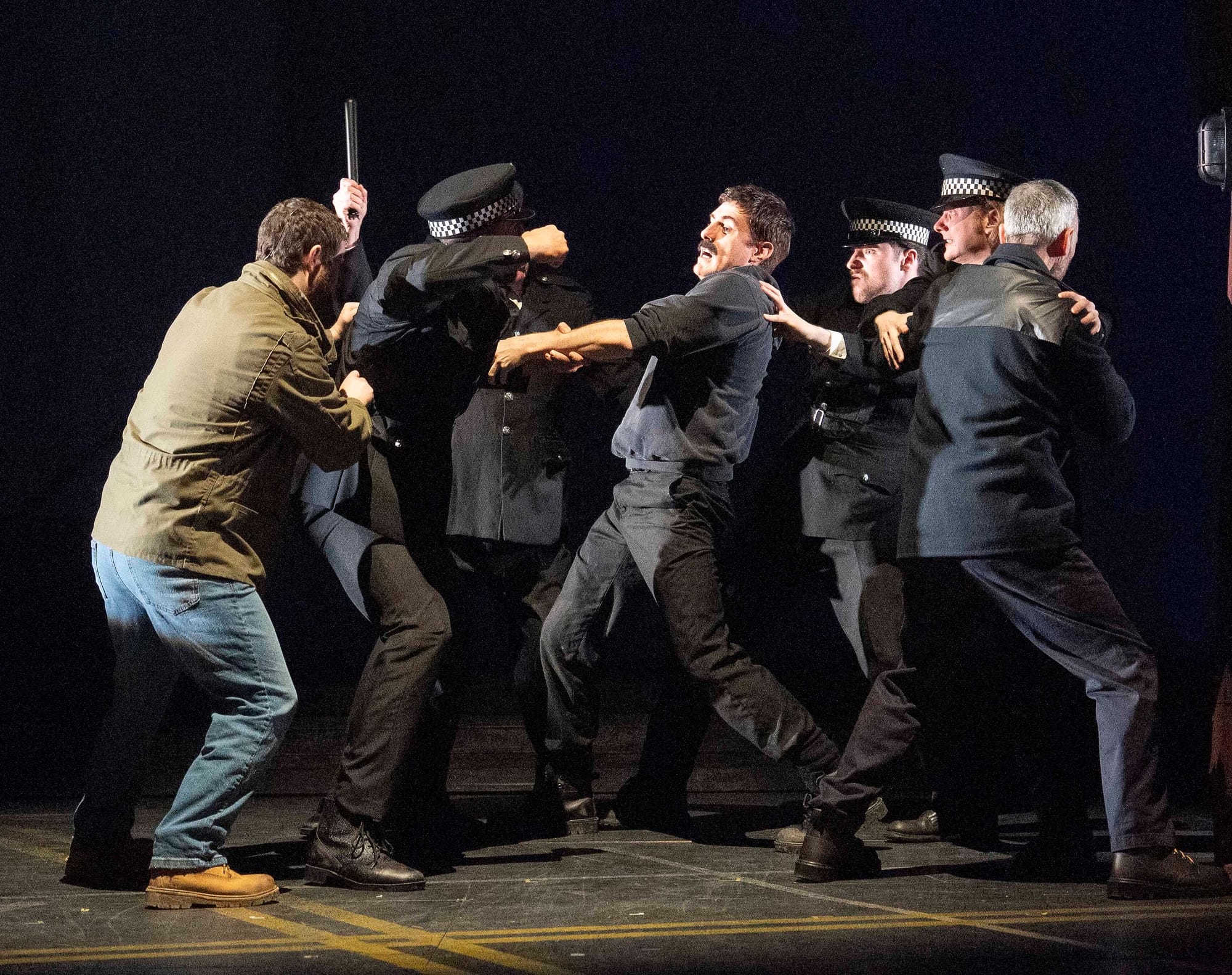
This is theatre of its time in the very best sense. Bleasdale's unwavering focus on working-class experience illuminates the processes of community, grief, and survival when all usual supports are stripped away. It offers small moments of grace within its sea of despair, creating an essential historical narrative of social upheaval and the shattering of the old order—charting how modern British life emerged from the literal ruins of our proud industrial heritage.
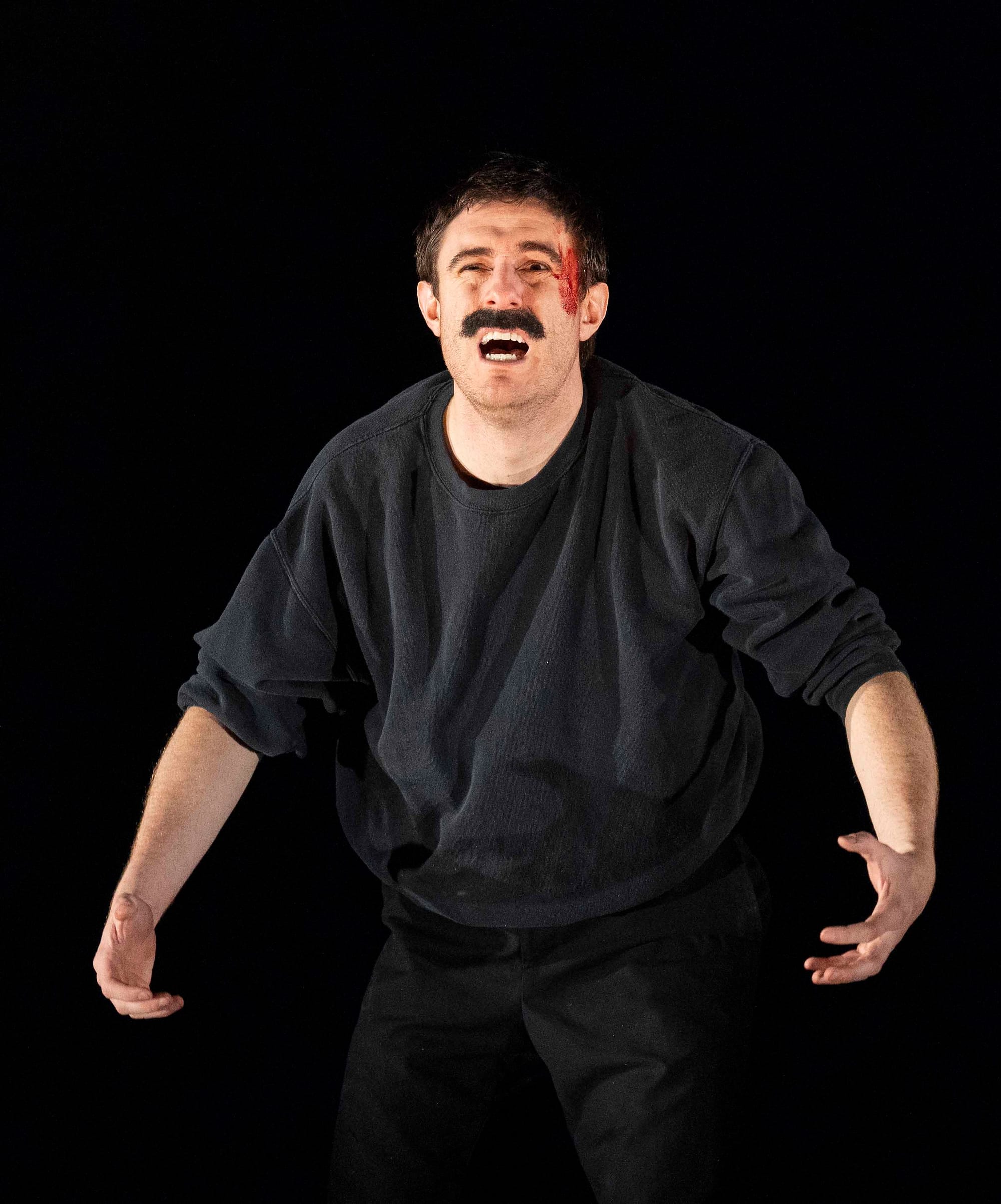
Having lived through the miners' strike in the South Welsh valleys as a young man, I recognised the raw anger and everyday frustrations of a system seemingly rigged against any normal means of resistance. The vicious political narrative of Thatcher's Tories, combined with the callous brutality of police against close-knit communities, is captured with devastating accuracy. This elevates the production beyond mere historical drama into vital social commentary—offering insight into the formative experiences of a generation and the systematic destruction of their elders on the wheels of free-market ideology.
Boys from the Black Stuff reminds us that vulnerability, when honestly portrayed, becomes a form of radical politics. In our current moment of economic uncertainty and social fracture, Bleasdale's work feels urgently contemporary—a testament to the enduring power of community in the face of institutional abandonment.
Boys from the Black Stuff runs until Saturday. Tickets Theatre Royal Brighton



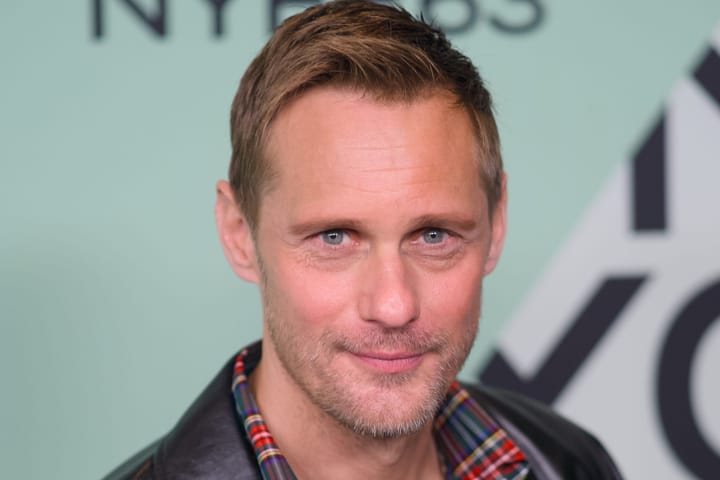

Comments ()